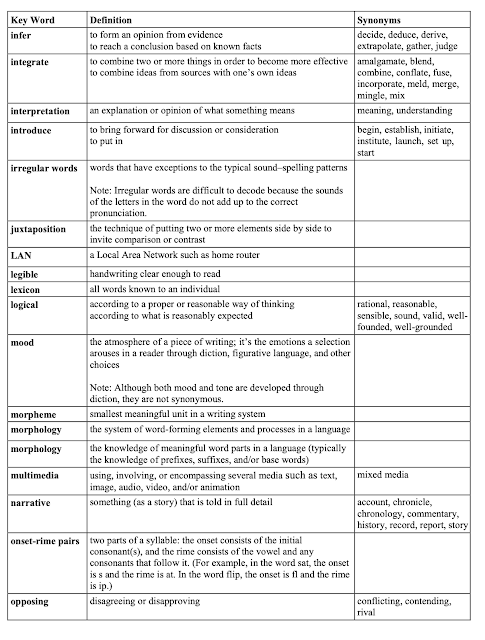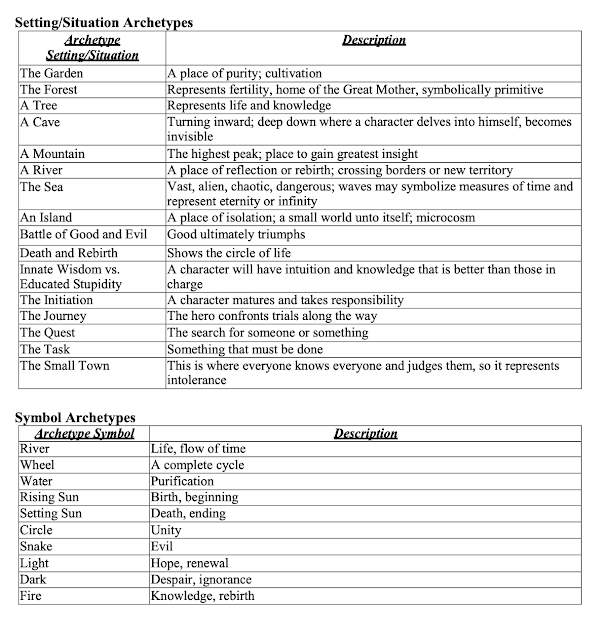Current assignments may be on the first through third pages. Ignore the black dates above the posts. Scan posts for work with dates close to now (dates WITHIN the posts). The posts are in no particular order, so scroll through the first three pages. Keep copies of all your files on your laptop and in your binder. If I collect an assignment, not having a printed version will result in a grade of zero. Assignments could be collected at ANY time.
Pages
- Home
- All Classes--Analysis Activity for Texts
- Class Rules and Expectations
- About the Teacher
- Rubrics for Reading and Writing
- The Henry J. Mulhern Scholarship
- B.E.S.T. Standards Information
- Website Index--Look Here for a Variety of Informative Posts
- Copyright Law for This Website
- Always Check "Facts" That You Hear in the Media. Don't Be Fooled by Fake News.
- Information for Mr. Mulhern's Classes
- Teaching Methods and Philosophy
- Broward College--Attendance Policy
Tuesday, December 29, 2020
ENC1102--Short Story Presentation
Thursday, October 8, 2020
Adverbs and Adjectives--Use these questions to determine the part of speech: whether adverb or adjective.
An adverb describes or modifies a verb, another adverb, or an adjective. Adverbs answer how? where? when? how often? to what extent? how much?
SAT PSAT Important Reading Questions
Exercise One:
Use this link to create the most common question types on the SAT Reading section. Apply them to the text you are reading. Also, create the answers. Be very specific.
Thursday, October 1, 2020
"Graduation" Activity--Angelou Essay
Reread/analyze the text from paragraph 15 onward. Pay attention to characterization, theme(s), imagery, symbolism, conflict, dialogue, character motivation, point of view, setting, mood, shifts, and cultural mores (the accepted traditions, customs, morals, manners, and ways of a particular group). Be able to explain how these features add to the text.
Also, create questions and answers specific to those sections of the text.
Be ready to cite your examples and explain them during class discussion tomorrow.
Wednesday, September 30, 2020
"A Rose for Emily" Activity
"A Rose for Emily" Activity
For sections II, III, and IV, pay attention to characterization, theme(s), imagery, symbolism, conflict, dialogue, character motivation, point of view, setting, mood, Gothic and Grotesque features, and cultural mores (the accepted traditions, customs, morals, manners, and ways of a particular group). Be able to explain how these features add to the story and reinforce other literary elements of the text.
Also, create questions and answers specific to those sections of the text.
Be ready to cite your examples and explain them during class discussion tomorrow.
Hurston Notes
- theme of acting
- colloquial expressions/vernacular
- hyperbole
- voice
- tone
- mores
- amplifying setting/context
- using conventions of fiction. For example, dialogue
- establishing her persona--a strong, self-confident child
- humor/sarcasm
- particular diction (always quote in an essay) that establishes a theme
- imagery
- specific diction used to establish theme(s)
Rhetorical Modes--Some Types
Rhetorical Modes: patterns of organization; methods of development; types of writing.
- argumentative/persuasive
- compare/contrast
- definition
- narration
- exposition/explanatory/informational
- analogy--comparing situations
- process--explaining steps in a process
- example/illustration--giving a picture or specific instance (exemplification)
- classification/division--putting into categories
- descriptive
Analysis Essay--Politic Rhetoric
Choose two of the political texts we have read. Compare and contrast how the writers use rhetorical strategies--structure, devices, etc., to support a main argument/theme/purpose of their essays.
PSAT/SAT--Content of Nine Important Question Types in the Reading Section
Creating Nine Important Reading Questions
Use the following objectives to create specific questions and answers about a particular text. Do not write general questions. Direct your readers to important parts of the text as you brainstorm good questions. Tell your readers to always provide evidence--words and/or phrases.
Thursday, September 24, 2020
B.E.S.T. Standards--Sample Reading Texts for Grades 11 and 12
Tuesday, September 8, 2020
Monday, September 7, 2020
Saturday, August 15, 2020
Reading Strategies
.jpg!xlMedium.jpg) |
| The Starry Night, Vincent van Gogh (1889) |
Understanding "the why" is reading analytically, using your critical thinking skills by asking questions about the text as you read: main idea, purpose, supporting details, etc.
Use the following strategy every time you read something. In this way, you will become a more analytical, "deep reader." Your reading comprehension will increase and you will become smarter as a result.
Wednesday, August 12, 2020
ENC1101--Read this Interesting Article About the History of Plagues
Click on the following link: https://nymag.com/intelligencer/2020/07/coronavirus-pandemic-plagues-history.html
Copy and paste into a Word document. Then print out and read/annotate the article.
Saturday, May 30, 2020
Saturday, May 23, 2020
Study Hall Activities: Week of May 25, 2020
Use this Study Hall to enhance your knowledge and skills. Remember, these are suggested activities to retain and improve your learning. You are not required to do them, as this is a Study Hall.
Saturday, May 16, 2020
Study Hall Activities: Week of May 18, 2020
Use this Study Hall to enhance your knowledge and skills. Remember, these are suggested activities to retain and improve your learning. You are not required to do them, as this is a Study Hall.
Saturday, May 9, 2020
Study Hall Activities: Week of May 11, 2020
Use this Study Hall to enhance your knowledge and skills. Remember, these are suggested activities to retain and improve your learning. You are not required to do them, as this is a Study Hall.
Sunday, May 3, 2020
ENC Courses Transition to Study Hall
Hi Scholars,
Congratulations on completing the ENC courses. As I told you in my post on April 7, the ENC courses transition into a Study Hall now that they are ended.
















































